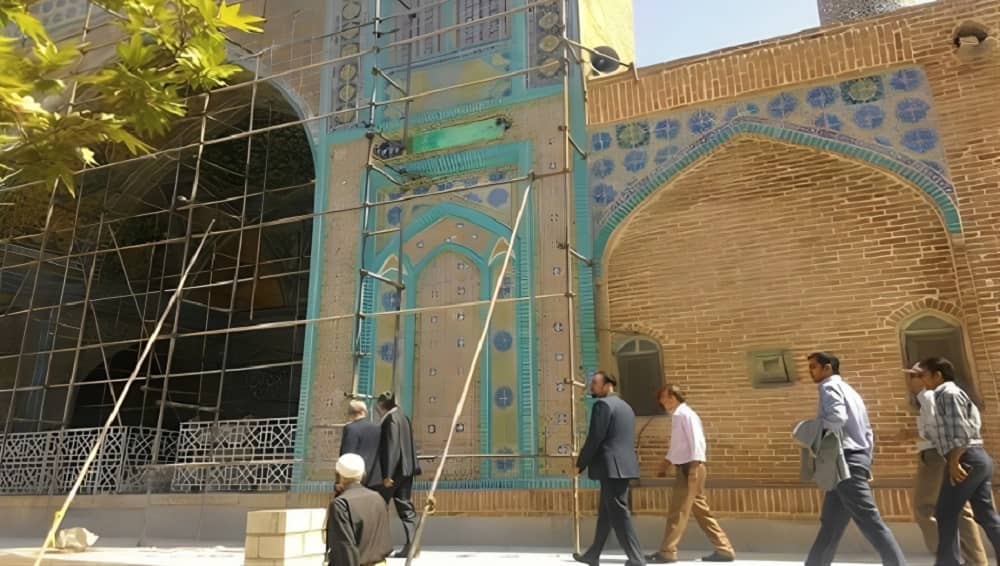

Reports have surfaced, suggesting that Tehran’s mayor, Alireza Zakani, and his close associates, are involved in questionable activities linked to the construction and financial support of religious institutions.
According to the news website Eskan News, documents were released showing an allocation of 8 billion tomans to the “Imam Hossein Mosque,” a mosque frequented by Mohammad-Amin Tovakolizadeh, the cultural deputy of the city council, and his circle. Of this sum, 2 billion tomans were disbursed immediately.
This mosque has reportedly become a recruitment center for state-affiliated individuals, many hired by the municipality and the cultural deputy’s office despite lacking prior experience. Tovakolizadeh, who reports directly to Mayor Zakani, oversees all activities related to this mosque. Alireza Rajabi and Mohsen Kabiri-Tameh, both linked to Zakani’s office, approved the funds. Intriguingly, Kabiri-Tameh’s brother works under Tovakolizadeh, highlighting a potential conflict of interest.
Watch and judge how the regime in #Iran justifies the systemic #corruption of its leaders pic.twitter.com/N2RAWUoz0k
— NCRI-FAC (@iran_policy) January 12, 2024
The state-run website Eko Iran, in a report titled “Who Were the Paradise Mosque Builders?”, reveals that the practice of allocating funds for mosque construction is a longstanding one, implicating various political factions within the Tehran city council. The report criticizes both reformists and principalists, stating that each faction when in power, favors its allies through such allocations.
Corruption within the Tehran Municipality is not a new phenomenon. Scandals have been reported in past administrations, including a significant case revealed in June 2023 involving a 20 trillion tomans corruption scandal. More recently, in December 2023, a city council member raised concerns about the unaccounted sum of 17 trillion tomans from the municipality’s budget, questioning, during a city council meeting, the whereabouts of the funds and the inclusion of non-existent housing projects in the budget.
April 7—Shush, southwest #Iran
Retirees and pensioners of the Social Security Organization resume their protests rallies, demanding the regime to raise their pensions according to its own laws.#IranProtestspic.twitter.com/h5YQJerm8o— People's Mojahedin Organization of Iran (PMOI/MEK) (@Mojahedineng) April 7, 2024
These allegations raise profound questions about governance and transparency in Iran’s capital. They reflect a broader issue of financial corruption within the Iranian regime’s institutions, as officials and the public demand accountability. As the situation develops, both local and international observers are keenly watching the responses from government officials and the potential repercussions for those involved. This ongoing saga is not only the challenges of combating corruption but also the complexities involved in governing a major city like Tehran.

MEK Iran (follow us on Twitter and Facebook), Maryam Rajavi’s on her site, Twitter & Facebook, NCRI (Twitter & Facebook), and People’s Mojahedin Organization of Iran – MEK IRAN – YouTu







